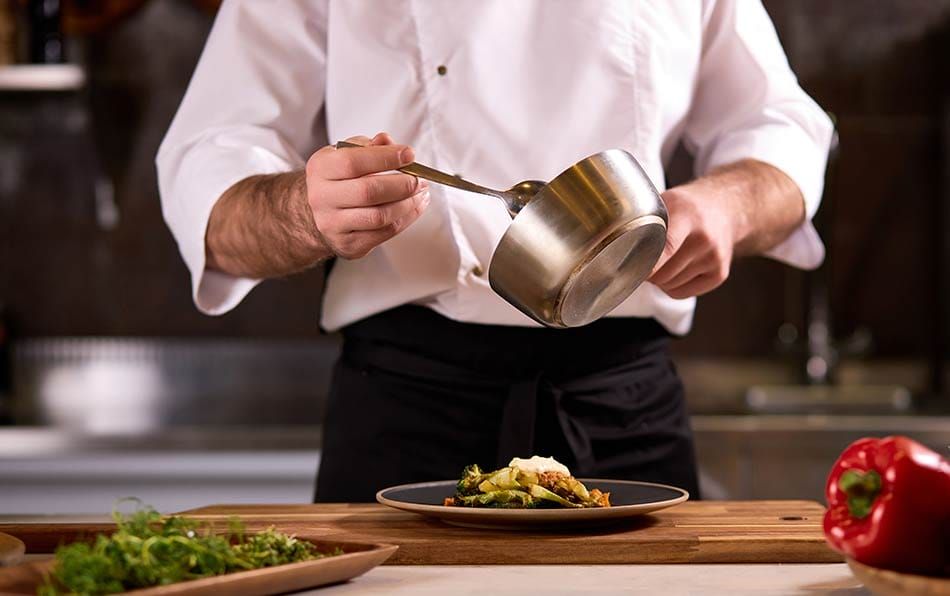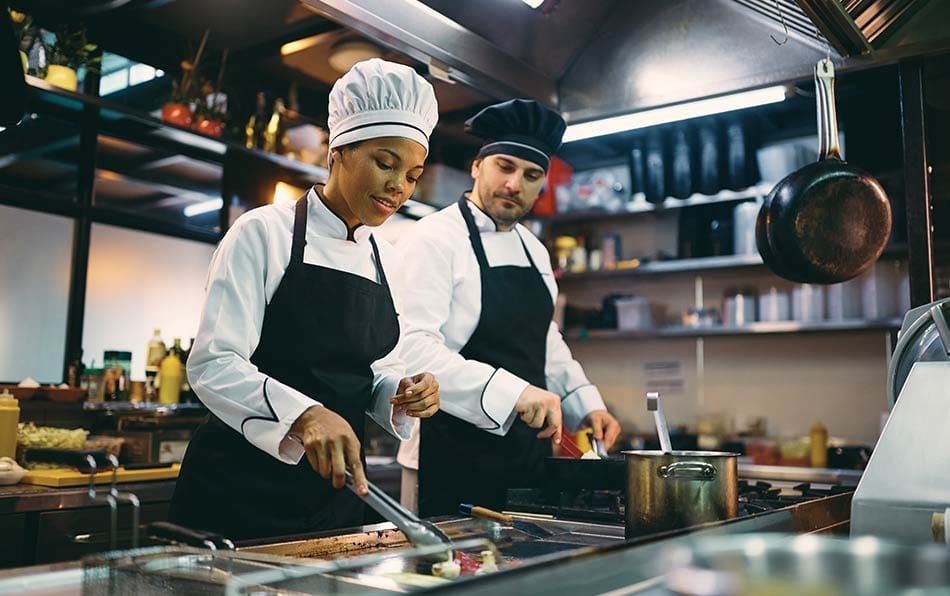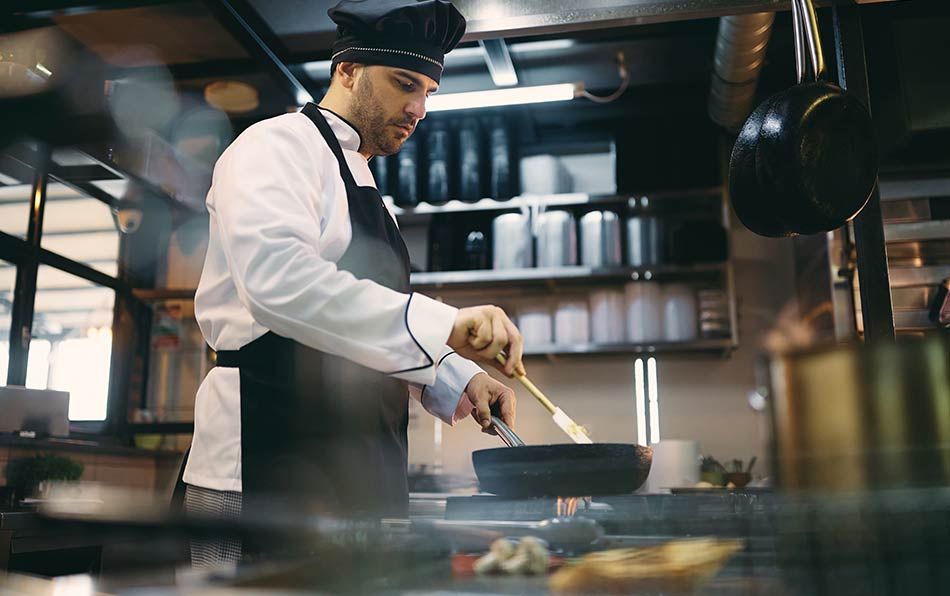If you have a passion for cooking and want to learn more about the culinary industry, chances are you're thinking about pursuing a career as a Chef. Contrary to popular belief, you don't need formal culinary education to become a Chef. In this article, we'll show you how to become a Chef without culinary school.
Can You Become a Chef Without Culinary School?
Yes, it's possible to become a Chef without culinary school. Formal education is appreciated, but often not required in the culinary industry. To earn the title of a Chef, you need to display hard work and willingness above all else.
Even the great Gordon Ramsay didn't attend a culinary school and opted to study hotel management instead. He built his name in the industry by working in various restaurants and continuously delivering results.
If you choose not to attend a culinary school, you need to focus on other ways of proving that you have what it takes to become a top-level Chef. With that said, let's look at some of the things you can do that'll help you position yourself as a better candidate before you start applying for Chef jobs.
Improve your cooking skills
Even if you're starting at an entry-level position in a restaurant, knowing your way around the kitchen is beneficial. While on the hunt for a job, you can practice cooking and improve your skills at home.
Start by equipping yourself with the right tools. You can get professional Chef knives, non-stick frying pans, good chopping boards and other cooking utensils for not a whole lot of money. With all this in your arsenal, you can learn different cooking techniques and experiment with new recipes.
No Chef has acquired their cooking skills overnight. Practice in your free time so that once you land your first job, you'll be able to impress the rest of the kitchen staff. Plus, you'll get to enjoy all the delicious meals you'll be making in the meantime.

Gain experience
Experience is one of the key aspects of becoming a Chef without culinary school. Individuals in this role are often seen as the best in their field and to prove that, they first need to stand out in other kitchen roles. Cooks and Chefs aren't the same thing, but to land a job as a Chef, you may have to start working as a Cook first. The role will see you operate one kitchen station and perform basic cooking tasks such as chopping, frying and grilling.
As you gain more experience and continue to prove you have what it takes, you can advance to the role of Chef if management deems you're competent and knowledgeable enough. Remember that there are different types of Chefs and not all of them occupy the same spot in the kitchen hierarchy. Therefore, even once you transition into this role, you may first find yourself in the role of a Pastry Chef, for example. Only once you prove yourself in positions like this can you advance to the highest role in the kitchen hierarchy and become an Executive Chef.
Additionally, consider seeking opportunities in diverse culinary settings, such as catering companies, food trucks, or bakeries. This exposure broadens your skill set and adaptability in various kitchen environments. Volunteering for community events or local food festivals can also provide practical experience and enhance your resume.
Earn a certification
Most people think that becoming a certified Chef involves hours of practical training and passing difficult exams. And while this is the case with some culinary certification programs, most of them only require you to go through study materials online and take an online exam from home.
The main purpose of most of these courses is to verify that you're knowledgeable about basic cooking techniques, food safety and sanitation and managing a kitchen team.
Some institutions that offer Chef certifications, like the American Chef Federation (ACF), require experience in the role and you won't be able to enroll in these courses as a rookie. However, as we mentioned above, others can be taken when you're first entering the culinary industry and they can help you move up the ranks.
Find a mentor
Working in an entry-level kitchen position means you'll be surrounded by professionals who've been working in the industry for years. Try to get a Chef in your team to be your mentor and help you foster your key skills for the role.
Observe how they tackle their daily tasks and try to employ the same methods in your work. This not only includes how they prepare food but also how they manage the team and keep track of kitchen inventory.
The right mentor will be more than willing to jump at the opportunity to encourage your professional development. They may even help you build your network and connect you to the right people in the industry.

Build a professional network in the culinary industry
Establishing a robust professional network is crucial for career advancement in the culinary field. Consider the following strategies:
- Attend Industry Events: Participate in food festivals, culinary workshops, and trade shows to connect with industry professionals.
- Join Professional Associations: Become a member of organizations such as the American Culinary Federation to access resources and networking opportunities.
- Utilize Social Media: Engage with platforms like LinkedIn and Instagram to showcase your work and connect with peers and potential employers.
Understanding the Business Side of Culinary Arts
To succeed as a Chef, it's essential to grasp the fundamentals of running a culinary business:
- Cost Management: Learn how to budget for ingredients, control portion sizes, and minimize waste to maintain profitability.
- Menu Planning: Develop skills to create appealing menus that balance cost, seasonality, and customer preferences.
- Health and Safety Regulations: Stay informed about local health codes and ensure your kitchen practices comply with legal standards.
A solid understanding of these aspects can enhance your effectiveness in a culinary role and open opportunities for advancement.
Follow Well-Known Chefs on Social Media
If you're using the internet right, it can help you advance your career in lots of ways. Many famous Chefs can easily be found online, along with their cooking secrets and tips for managing kitchen staff.
A smart thing to do is to follow well-known Chefs such as Olivia Binn Ostrow, Sami Udell and JJ Johnson on social media and learn about their work etiquette. Look for posts in which they share tips and tricks and talk about their journeys.
Another thing you can do to stand out is to stay up-to-date with the latest and most innovative recipes and try to make the dishes yourself. For example, Gordon Ramsey shares all his latest creations in his ever-popular blog.
At OysterLink, we had the opportunity to talk to some of the best Chefs and learn more about their journey in the culinary world.
Chef Robb Garceau told us that he was studying environmental science when he got an opportunity to work as a head steward, and he gave us a rundown of his first day of working as a Sous Chef. In our interview with Robb Garceau, he expressed the importance of both technical skills and emotional intelligence needed for working in a kitchen. His stance is that since mistakes are inevitable, it's all about how you handle them and whether you learn from them.



.png)

.png)
.png)